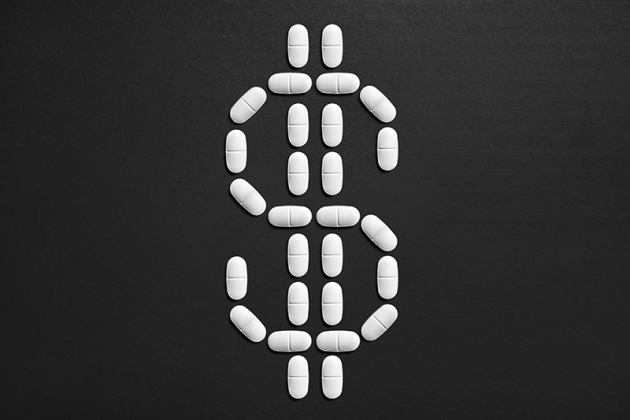By Sarah Karlin-Smith with PoliticoPro
The White House’s proposed fiscal 2020 budget includes a slew of changes to Medicare, Medicaid, the FDA and the 340B federal drug discount program that could save the government more than $69 billion on drug costs over a decade — if Congress agrees to update legislation.
About $66 billion of the savings would flow to Medicare. Some of the savings would be derived from discouraging the use of brand-name drugs, lowering the reimbursement rate for certain drugs or having manufacturers cover more of seniors’ drug costs in Medicare Part D. Health plans would also be on the hook for more spending in Part D.
A good portion of the suggested changes were not scored in the budget documents released Monday, meaning the initial savings estimate could be misleading. A number of ideas were proposed by the administration last year, but there are a handful of new ones largely affecting Medicare Part B and the FDA. Some of the Medicare Part D proposals are also modified slightly from previous budget requests.
One proposal to establish an out-of-pocket spending cap for Medicare Part D beneficiaries would cost the government $14 billion over 10 years. Government costs would go up despite the White House proposing to shift more responsibility to insurance plans in the catastrophic phase by raising their liability from 15 percent to 80 percent over a decade. At the same time Medicare’s reinsurance liability would drop from 80 percent to 20 percent.
This increased spending is offset by other ideas like excluding drug company discounts from the calculation of patients’ out-of-pocket costs when they are in the coverage gap or “doughnut hole” phase of Medicare Part D. This move would likely cost drug companies but save the government $74.7 billion over a decade as patients would move to the catastrophic phase more slowly. In the catastrophic phase, taxpayers pick up the tab for most of a beneficiaries medicine costs.
For physician-administered drugs in Medicare Part B, the administration wants to reduce payments for brand-name drugs from average sales price plus 6 percent to average sales price minus 33 percent if a manufacturer files a pay-for-delay agreement to keep a generic drug company from introducing a competing product for a certain period of time. The lower payment rate would also apply when drug companies take other anti-competitive steps after the primary patent or market exclusivity expires for their products. Once a competitor is available, CMS will revert to the original reimbursement formula. The White House could not estimate the budgetary impact but said Congress will have to pass legislation to move forward with the idea.
In Part B, the government would also reap $4.3 billion in savings in Medicare Part B over a decade if Congress agrees to a White House proposal to eliminate “pass-through” payments — the bonus payments given to some new drugs, bioloigcs and biosimilars when they first come to market.
Other proposed changes to Medicare drug spending include revived proposals to shift some Medicare Part B drugs into Part D so that Part D plans could try and negotiate lower costs for the medicines, and paying less for some physician-administered drug during their first few months on the market.
The budget also calls for tweaks to laws governing the FDA to try and spur more competition with cheap generics. Changes to the 180-day exclusivity period awarded to the first generic that challenges a brand-name drug patent are estimated to save $960 million in Medicare and $200 million in Medicaid over a decade. The administration would prevent first-to-file generic applicants from blocking additional generic competition by intentionally delaying their 180-day exclusivity period. Another change to the exclusivity process that has not been scored would revoke an applicant’s 180-day exclusivity if FDA refuses to approve the drug, unless the approval failure was due to a change in the regulatory requirements. The House Energy and Commerce health subcommittee is slated to review legislation making similar changes later this week.
Other proposed FDA reforms include codifying the agency’s approach to determining a new chemical entity so companies can’t get the five-year exclusivity for new chemical entities for products that don’t represent true innovation. The budget also asks Congress to give FDA more authority to prevent companies from using citizen petitions to delay generic drug approval and changes standards to make biosimilar entry easier.
Most of the Medicaid proposals in the budget have been floated before. For instance, the administration wants Congress to allow up to five states to test negotiating with drug manufacturers to set up a closed formulary instead of using the current Medicaid drug rebate program. This is estimated to save $410 million over 10 years.
The budget proposal also estimates $347 million in savings over 10 years if lawmakers clarify the Medicaid definition of brand-name and over-the counter-drugs as well as biologics to ensure proper Medicaid drug rebates. And another $150 million in savings over a decade would come from updating current law to ensure authorized generic sales aren’t calculated into a brand-name drugs’ average price for Medicaid rebate purposes.
The budget also calls for changing the 340B drug discount program. It proposed allowing CMS distribute the savings from reduced payments for Medicare Part B drugs to 340B hospitals and health facilities based on the percent of uncompensated care they provide. Currently CMS must use the savings in a budget neutral way.




